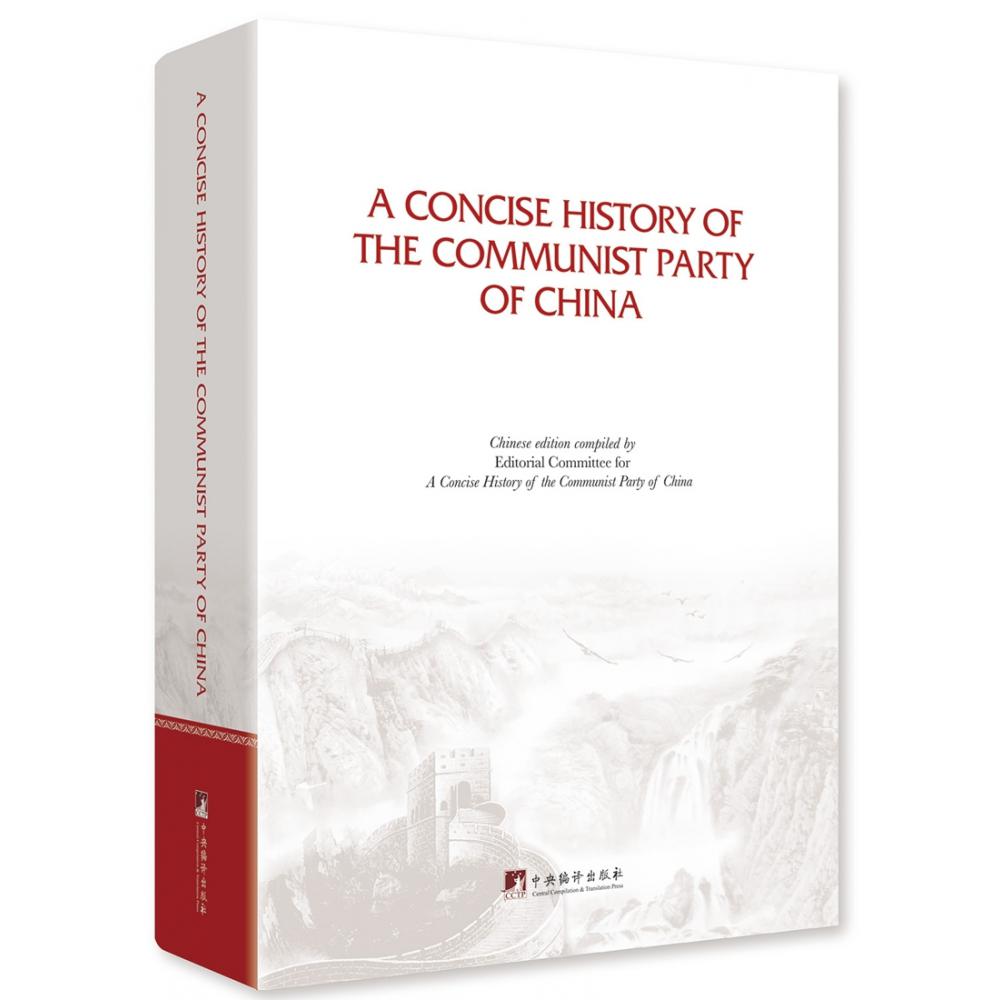
出版社: 中央编译
原售价: 160.00
折扣价: 108.80
折扣购买: 中国共产党简史(英文版)
ISBN: 9787511739780

中央党史和文献研究院是党的历史和理论研究专门机构,是党中央直属事业单位,为正部级。2018年3月21日,中共中央印发的《深化党和国家机构改革方案》指出:党史和文献工作是党的事业的重要组成部分,在党和国家工作大局中具有不可替代的重要地位和作用。为加强党的历史和理论研究,统筹党史研究、文献编辑和著作编译资源力量,构建党的理论研究综合体系,促进党的理论研究和党的实践相结合,打造党的历史和理论研究高端平台,将中央党史研究室、中央文献研究室和中央编译局职责整合,组建中央党史和文献研究院,对外保留中央编译局牌子。
Chapter I The Founding of the Communist Party of China and Its Involvement in the Great Revolution One night in July of 1921, the First National Congress of the Communist Party of China (CPC) opened in secret in a small two-story residence in Shanghai’s French Concession. This moment gave birth to a completely new party of the proletariat whose actions were to be guided by Marxism and Leninism. This was a truly groundbreaking event— a momentous occasion which, like a torch held aloft in the darkness, brought light and hope to the deeply distressed Chinese people. From that moment on, the Chinese people have had in the Party an anchor for their struggles to achieve national independence and liberation, to make their country prosperous and strong, and to realize happiness and contentment, and their mindset changed from passivity to taking the initiative. 1. Various Forces Explore Ways to Rejuvenate China in Modern Times Over the course of several millennia, the Chinese people created an enduring and splendid civilization, making a marvelous contribution to humankind and becoming one of the great peoples of the world. Following the advent of modern times, however, owing to the aggression of Western powers and the corruption of China’s feudal rulers, China was gradually reduced to a semi-colonial and semi-feudal society. As the land of China was laid to waste and the people descended into misery, the Chinese nation experienced suffering of unprecedented proportions. From 1840 onwards, Western powers launched numerous wars of aggression against China (most famous are the Opium War of 1840–1842 involving Great Britain, the Second Opium War of 1856–1860 with Great Britain and France, the Sino-French War of 1884–1885, the Sino-Japanese War of 1894–1895, and the war of 1900 against the aggression of the Eight-Power Allied Forces). Through these wars and other methods, Western powers forced China to cede territory and pay out indemnities, and they greedily extracted privileges of all kinds from China. Britain carved away Hong Kong, Japan occupied Taiwan, and czarist Russia seized the northeastern and northwestern parts of the country. Over one billion taels of silver were extracted from China in war indemnities, even though the Qing government generated just over 80 million taels of annual revenue at the time. Through unequal treaties of increasingly harsher terms, Western powers obtained many important privileges in China, such as the right to set up ports and concessions, open mines and factories, build railways, establish banks and businesses, build churches, station troops, demarcate spheres of influence, and enjoy consular jurisdiction and unilateral mostfavored- nation treatment. Hundreds of unequal treaties and conventions, like an all-encompassing net, entrapped China politically, economically, militarily, and culturally. As a result, it was utterly helpless in the face of endless demands, and while it encountered reproach at every turn, Western powers had their way in the country on the strength of their treaties. They ran China’s trading ports, customs, foreign trade, and transport lines and dumped large quantities of their goods in China, treating it as a market for their products and a base for extracting raw materials.